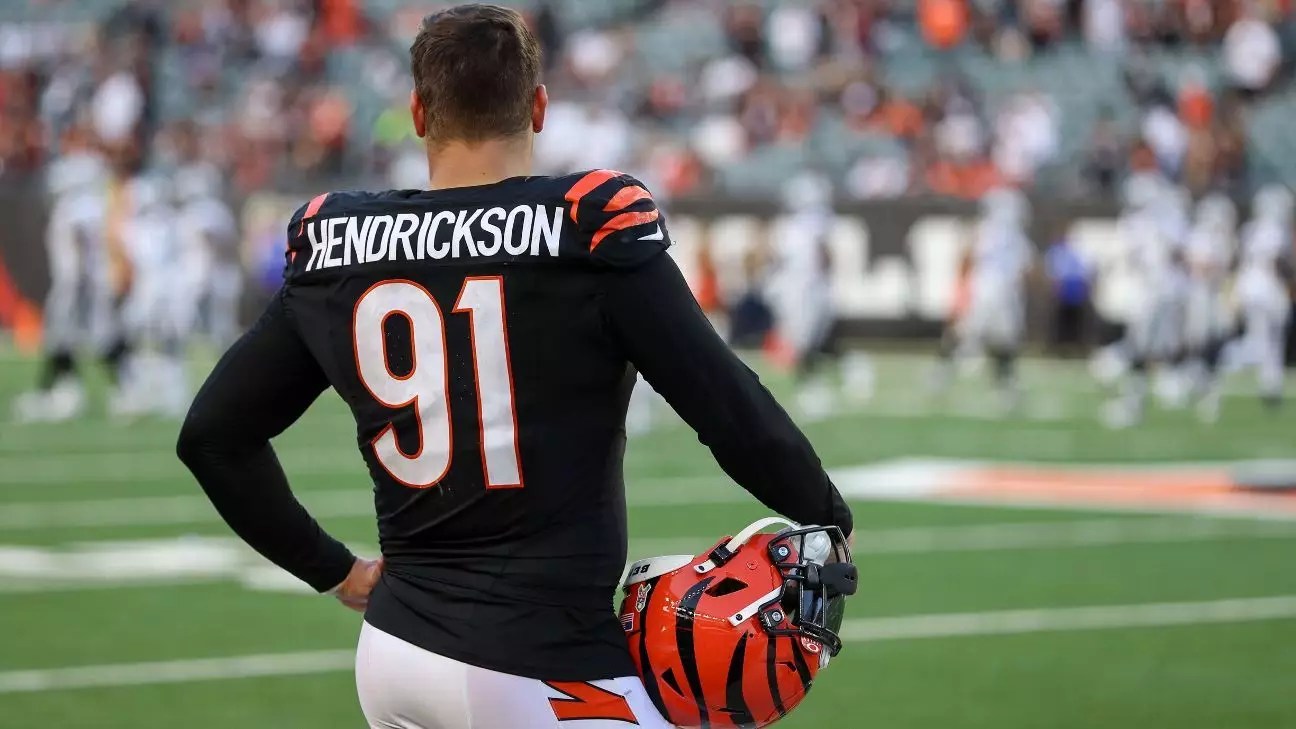Trey Hendrickson’s unwavering stance on his contract dispute reveals more than just a player’s desire for fair compensation; it underscores a rising tension in NFL negotiations where players seek not only lucrative deals but also guaranteed security. Hendrickson, a proven star with an impressive 17.5 sacks last season, has positioned himself as a symbol of player empowerment. His refusal to participate in team activities until contractual guarantees are addressed calls into question the evolving nature of player-team relationships, especially in an era of increasing player agency and demand for security.
Analyzing the Negotiation Breakdown
The core contention between Hendrickson and the Bengals revolves around the structure of the guaranteed money. The team’s stance — offering a solid overall value but minimal guaranteed sums beyond the initial season — reflects a cautious approach common among franchises wary of long-term financial commitments. Conversely, Hendrickson’s insistence on guaranteed money aligns with the broader trend of players demanding security in case of injury or decline, especially as they approach their 30s. His willingness to hold out and forgo practice signals a strategic assertion of leverage, emphasizing that a player’s worth extends beyond just per-year salary.
The Impact on Team Dynamics and Future Negotiations
This standoff isn’t isolated; it serves as a bellwether for future contract negotiations across the league. Teams may find themselves re-evaluating their approach to guarantees, while players will continue to push for contracts that provide ownership of their financial security. Hendrickson’s case also highlights how modern players recognize their value, especially after a career-best season. If his stance influences others to adopt a similar approach, the NFL could see a shift toward more transparent and equitable contract structures, forcing teams to rethink their negotiations strategy.
Personal Motivations vs. Industry Trends
Hendrickson’s comments — emphasizing security over recognition — reveal a pragmatic mindset. It is not about ego or fame; it centers on stability for himself and his family. These priorities resonate with many players, especially those in their prime who want assurance of their financial future. This shift from pure performance-based negotiations to security-minded contracts indicates a deeper cultural change in the NFL, where players are increasingly valuing long-term stability over short-term gains.
The Broader Implication for the NFL
Ultimately, Hendrickson’s stand might catalyze broader reforms in NFL contract policies. If top-tier players increasingly refuse to play without secured guarantees, teams will be compelled to adapt. The league may need to reassess its approach to player contracts, balancing financial prudence with the legitimate need for security. This evolving landscape could usher in more player-centric negotiations — a positive development that aligns with wider societal shifts advocating for worker protections and fair pay. Hendrickson’s firm stance isn’t just about one player’s contract — it hints at a future where players have greater control over their economic destiny within the sport they elevate.

